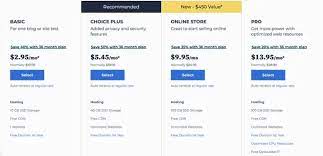Understanding Website Development Costs
Creating a website is a crucial investment for any business or individual looking to establish a strong online presence. However, one of the most common questions that arise during the website development process is: How much does it cost?
The cost of developing a website can vary significantly depending on various factors such as the complexity of the design, features required, functionality, and the expertise of the developers. Here are some key factors that influence website development costs:
- Design Complexity: A simple, basic website will cost less than a complex, custom-designed website with intricate features and animations.
- Functionality: Websites that require advanced functionality such as e-commerce capabilities, user login systems, or integration with third-party services will incur higher development costs.
- Content Management System (CMS): Using a CMS like WordPress or Drupal can affect costs. Custom-built websites may require more development time and resources.
- Responsive Design: Ensuring that your website is mobile-friendly and responsive across different devices can impact development costs.
- SEO Integration: Incorporating search engine optimization (SEO) features into your website design can add to the overall cost but is essential for improving visibility on search engines.
It’s important to work closely with your web development team to outline your requirements and budget constraints from the outset. Clear communication and transparency regarding costs will help avoid any surprises during the development process.
In conclusion, while website development costs can vary based on several factors, investing in a well-designed and functional website is essential for establishing credibility, attracting customers, and achieving online success. By understanding the key factors that influence costs and working closely with experienced developers, you can create a website that meets your needs without breaking the bank.
Six Essential Tips to Manage and Minimise Website Development Costs
- Plan your website requirements thoroughly to avoid unnecessary costs later on.
- Consider using open-source platforms or templates to reduce development expenses.
- Compare quotes from multiple web development agencies to find the best value for money.
- Factor in ongoing maintenance and updates costs when budgeting for your website.
- Invest in good quality hosting services to ensure optimal performance of your website.
- Optimise your website for mobile devices to reach a wider audience and improve user experience.
Plan your website requirements thoroughly to avoid unnecessary costs later on.
Thoroughly planning your website requirements is essential to avoid unnecessary costs in the future. By clearly outlining your needs and objectives from the outset, you can ensure that the development process stays on track and within budget. A well-thought-out plan helps identify essential features, design elements, and functionality upfront, preventing costly changes or additions down the line. Effective communication with your web development team during the planning stage is key to creating a website that meets your goals without incurring unexpected expenses.
Consider using open-source platforms or templates to reduce development expenses.
When considering website development costs, one effective tip is to explore the option of using open-source platforms or templates. By utilising these resources, businesses can significantly reduce their development expenses. Open-source platforms like WordPress or Joomla offer a wide range of pre-designed templates and plugins that can streamline the development process and lower costs. These platforms provide a cost-effective solution for creating professional-looking websites without the need for extensive custom coding. Embracing open-source technologies can be a practical strategy for businesses looking to maximise their budget while still achieving a high-quality online presence.
Compare quotes from multiple web development agencies to find the best value for money.
When considering website development costs, it is advisable to compare quotes from multiple web development agencies to ensure you are getting the best value for your money. By obtaining and comparing quotes from different agencies, you can evaluate the services offered, the expertise of the developers, and the overall cost to make an informed decision that aligns with your budget and requirements. This proactive approach can help you find a reputable agency that offers quality services at a competitive price, ultimately maximising the return on your investment in website development.
Factor in ongoing maintenance and updates costs when budgeting for your website.
When considering website development costs, it is crucial to factor in ongoing maintenance and updates expenses into your budget. Building a website is not a one-time investment; regular maintenance and updates are necessary to ensure its optimal performance, security, and relevance. By allocating resources for ongoing maintenance, you can keep your website up-to-date, address any technical issues promptly, and provide a seamless experience for your visitors. Ignoring these costs may lead to potential problems in the future and hinder the overall success of your online presence.
Invest in good quality hosting services to ensure optimal performance of your website.
Investing in good quality hosting services is essential to ensure the optimal performance of your website. A reliable hosting provider can significantly impact the speed, security, and overall user experience of your site. By choosing a reputable hosting service that offers excellent uptime, fast loading times, and robust security features, you can enhance the reliability and performance of your website, ultimately leading to improved customer satisfaction and better search engine rankings.
Optimise your website for mobile devices to reach a wider audience and improve user experience.
Optimising your website for mobile devices is a crucial step in reducing website development costs. By ensuring that your site is responsive and user-friendly on smartphones and tablets, you can reach a wider audience and enhance the overall user experience. With the increasing number of users accessing websites on mobile devices, prioritising mobile optimisation not only improves accessibility but also boosts engagement and conversions. Investing in mobile responsiveness early on can save you time and resources in the long run, making it a cost-effective strategy to maximise your online presence and cater to the evolving needs of your audience.

